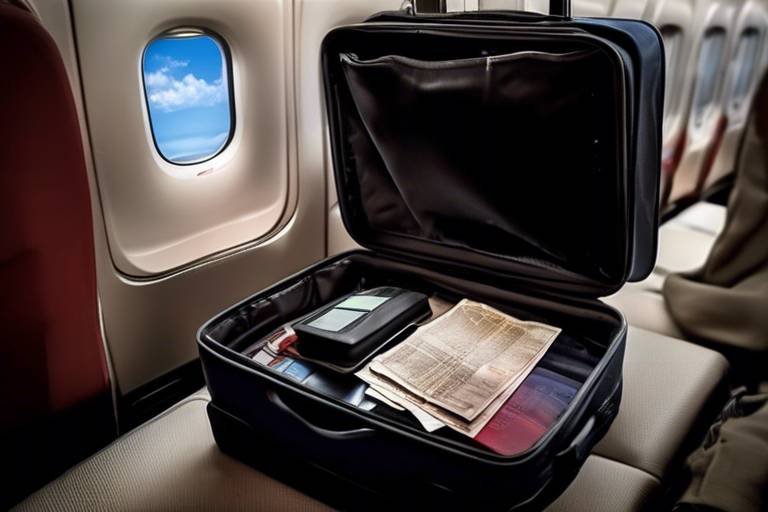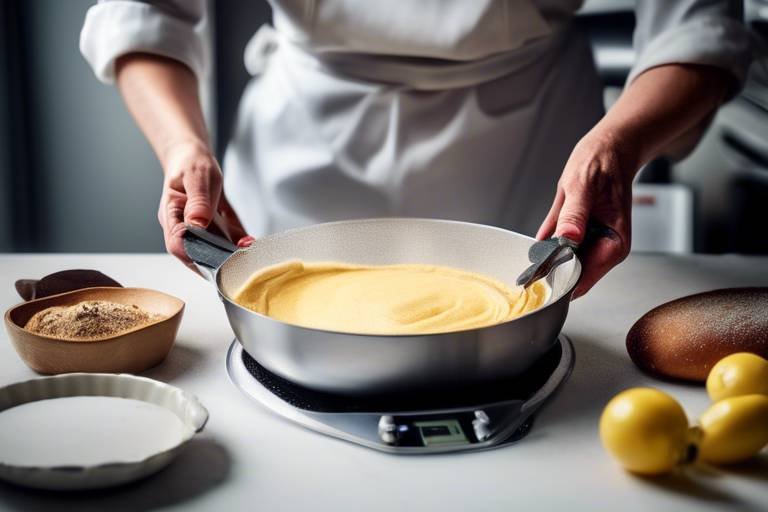Are Your Belongings Safe While You Travel?
Traveling is one of life’s greatest joys, but it can also be a source of anxiety, especially when it comes to the safety of your belongings. Have you ever found yourself worrying about the security of your luggage while waiting at the airport or wondering if your valuables are safe in your hotel room? You’re not alone! Many travelers share these concerns, and understanding how to protect your belongings can make your journey much more enjoyable. In this article, we’ll dive into essential tips and strategies to ensure that your possessions remain safe while you explore new destinations. From choosing the right luggage to understanding insurance options and practical advice for keeping your valuables secure, we’ve got you covered.
Before we delve into protective measures, it’s crucial to understand the inherent risks that come with traveling. Theft, loss, and damage are just a few of the potential threats to your belongings. Imagine arriving at your destination only to discover that your suitcase has gone missing or that your wallet has been stolen in a crowded market. By recognizing these risks, you can develop effective strategies to safeguard your possessions. Awareness is your first line of defense! It’s all about being proactive rather than reactive. Keep in mind that the more prepared you are, the less likely you are to encounter issues.
The type of luggage you choose can significantly influence the safety of your belongings. When selecting luggage, consider features that deter theft and withstand the wear and tear of travel. Look for durable materials and secure compartments. After all, your luggage is your first line of defense against potential threats. A good quality suitcase can make a huge difference! You wouldn’t want to trust your precious items to flimsy bags that can easily be compromised. So, what should you look for? Let’s break it down.
One of the most effective ways to secure your luggage is through reliable locking mechanisms. A good lock can deter opportunistic thieves and give you peace of mind. There are various types of locks available, each with its own benefits and drawbacks. Whether you choose a combination lock, a key lock, or a built-in lock, understanding their functionalities can enhance the security of your belongings while traveling.
When it comes to locking mechanisms, you have two primary options: combination locks and key locks. Combination locks are convenient because you don't have to worry about losing a key. However, they can be vulnerable if someone figures out the combination. On the other hand, key locks offer a more traditional approach but require you to keep track of the key. Think of it this way: a combination lock is like a secret code that only you know, while a key lock is like a physical key to a treasure chest. Which one would you feel more comfortable with?
Some modern luggage comes equipped with built-in locks, which can offer an extra layer of security. These locks are often TSA-approved, allowing airport security to access your luggage without damaging the lock. The convenience of built-in locks means you won’t have to worry about forgetting your key or combination. They provide additional peace of mind and can make your travel experience smoother. Picture this: you’re at the airport, and you can confidently leave your luggage unattended for a moment because you know it’s securely locked!
In today’s tech-savvy world, smart luggage options are becoming increasingly popular. These innovative bags often come with features like GPS tracking, built-in chargers, and remote locking mechanisms. Imagine being able to track your suitcase from your smartphone or receiving alerts if someone tries to tamper with it! Smart luggage can enhance your travel experience by providing added security and convenience. Plus, they often look sleek and modern, making you feel like a savvy traveler!
Even with the best precautions, accidents can happen. That’s where travel insurance comes into play. It can provide financial protection against loss, theft, or damage to your belongings. But how do you choose the right policy? Understanding the types of coverage available is essential. You don’t want to be caught off guard when something goes wrong!
Travel insurance typically comes in several forms, including comprehensive policies that cover a wide range of issues, including personal belongings, trip cancellations, and medical emergencies. It’s essential to read the fine print to see what is and isn’t covered regarding your belongings. For example, some policies may cover theft but not loss, while others may have limits on the value of items covered. Always choose a policy that fits your travel style and needs.
If your belongings are lost or stolen, knowing how to file a claim can be crucial. Start by documenting everything: take photos of the incident, keep receipts, and gather any relevant information. Most insurance companies have a straightforward claims process, but being prepared can make it much smoother. Think of it as having a safety net; when something goes wrong, you want to know how to fall safely!
Implementing practical safety measures can significantly reduce the risk of loss or theft. Here are some actionable tips to secure your belongings while traveling:
- Use anti-theft bags designed with security features to deter thieves.
- Stay vigilant and aware of your surroundings, especially in crowded places.
- Keep your valuables close, and avoid displaying them in public.
These simple yet effective strategies can go a long way in ensuring your belongings remain safe during your travels. Remember, a little caution can save you a lot of trouble!
Anti-theft bags are specifically designed with security features like lockable zippers, cut-resistant straps, and RFID-blocking compartments. These bags can be a game-changer, especially in busy tourist areas where pickpockets are common. Think of them as your personal bodyguards for your belongings!
Awareness of your surroundings is key to preventing theft. Always be on the lookout for suspicious behavior and trust your instincts. If something feels off, it probably is! Staying alert while traveling is like having a sixth sense; it can help you avoid potential dangers and keep your belongings safe.
Q: What should I do if my luggage is lost or stolen?
A: Immediately report the loss to the airline or local authorities, and file a claim with your travel insurance provider.
Q: How can I prevent theft while traveling?
A: Use anti-theft bags, stay aware of your surroundings, and keep your valuables secure and close to you.
Q: Is travel insurance worth it?
A: Yes! Travel insurance can provide peace of mind and financial protection in case of unforeseen events.

Understanding Travel Risks
Traveling is one of life's greatest joys, but it comes with its fair share of risks. Imagine this: You're exploring a bustling market in a foreign city, taking in the vibrant colors and tantalizing smells, when suddenly you realize your backpack feels a little lighter. That sinking feeling in your stomach? That's the reality of travel risks. From theft to loss, and even damage to your belongings, understanding these risks is crucial for developing effective safety strategies.
Every destination has its unique set of challenges. In some places, petty theft is rampant, while in others, natural disasters can strike without warning. Did you know that according to travel insurance statistics, around 1 in 6 travelers report losing personal items during their trips? That's a staggering number! This is why it's essential to be proactive rather than reactive. By identifying potential risks ahead of time, you can take steps to safeguard your possessions and travel with peace of mind.
Here are some common travel risks to keep in mind:
- Theft: Pickpockets and bag snatchers are often prevalent in crowded areas.
- Loss: Items can easily be misplaced or left behind in hotels, restaurants, or on public transport.
- Damage: Luggage can get damaged during transit, leading to broken zippers or torn fabric.
To mitigate these risks, consider your travel habits and the environments you'll be in. For instance, are you planning to visit tourist-heavy spots where crowds are a norm? If so, you might want to invest in anti-theft gear. Or perhaps you're heading to a remote area where the risk of loss is lower, but the chance of damage from rough terrain is higher? Understanding these nuances can make a significant difference in how you prepare.
Additionally, it's wise to familiarize yourself with the safety protocols of your destination. Research local crime rates, read up on traveler reviews, and don’t hesitate to ask locals for advice. They often have invaluable insights that can help you navigate potential pitfalls. Remember, knowledge is power! The more informed you are, the better equipped you'll be to protect your belongings and enjoy your travels to the fullest.
In conclusion, while risks are an inherent part of traveling, they don't have to overshadow your experience. By understanding what to look out for and taking proactive measures, you can safeguard your belongings and focus on making unforgettable memories. After all, travel should be about adventure, exploration, and the stories you bring back home—not about worrying over lost or stolen possessions.

Choosing the Right Luggage
When it comes to travel, the right luggage can be a game changer. It’s not just about style; it’s about security, durability, and functionality. Imagine you're at a bustling airport, surrounded by a sea of travelers, each with their own bags. The last thing you want is to worry about whether your belongings are safe or if your luggage will withstand the rigors of travel. Choosing the right luggage means making informed decisions that can protect your valuables and enhance your travel experience.
First and foremost, consider the material of your luggage. Hard-shell suitcases made from polycarbonate or aluminum offer superior protection against impacts and are less likely to be damaged during transit. On the other hand, soft-sided bags are often lighter and more flexible, allowing for easier storage. Think of it like choosing between a fortress and a cozy tent; both have their merits, but your choice depends on the adventure ahead.
Next, let’s talk about size. Overpacking can lead to unnecessary stress and complications. It’s essential to choose luggage that fits your travel needs without going overboard. A carry-on is ideal for short trips, while larger suitcases are better suited for extended vacations. Remember, the goal is to make your journey as seamless as possible. To help you visualize, here’s a quick comparison:
| Type of Luggage | Best For | Pros | Cons |
|---|---|---|---|
| Carry-On | Short trips | Easy to manage, no checked baggage fees | Limited space |
| Medium Suitcase | Weekend getaways | Good balance of space and portability | Can be cumbersome |
| Large Suitcase | Extended travel | Spacious, can hold more items | Heavy and may incur extra fees |
Another critical aspect to consider is the security features of your luggage. Look for bags equipped with locking mechanisms and anti-theft designs. These features can deter opportunistic thieves and give you peace of mind while you explore new destinations. Also, consider luggage with RFID-blocking pockets to protect your personal information from electronic pickpockets. It’s like having a personal bodyguard for your belongings!
Finally, don’t overlook the importance of wheels. Smooth-rolling wheels can make a world of difference, especially in busy airports or cobblestone streets. Opt for luggage with spinner wheels that can rotate 360 degrees, allowing you to maneuver easily without straining your back. Think of it as choosing between a sports car and a clunky old truck; the right wheels can make your travel experience much more enjoyable.
In summary, choosing the right luggage is more than just picking a pretty design. It’s about finding a balance between security, durability, and functionality. By considering the material, size, security features, and wheels, you can ensure that your belongings are safe and sound, giving you one less thing to worry about while you travel.
- What type of luggage is best for international travel? - A hard-shell suitcase with a TSA-approved lock is ideal for international trips due to its durability and security features.
- How can I prevent my luggage from being stolen? - Use luggage with strong locking mechanisms, anti-theft features, and always keep an eye on your belongings.
- Is it better to buy luggage sets or individual pieces? - It depends on your travel habits. Sets can be economical, but individual pieces allow for more tailored choices.
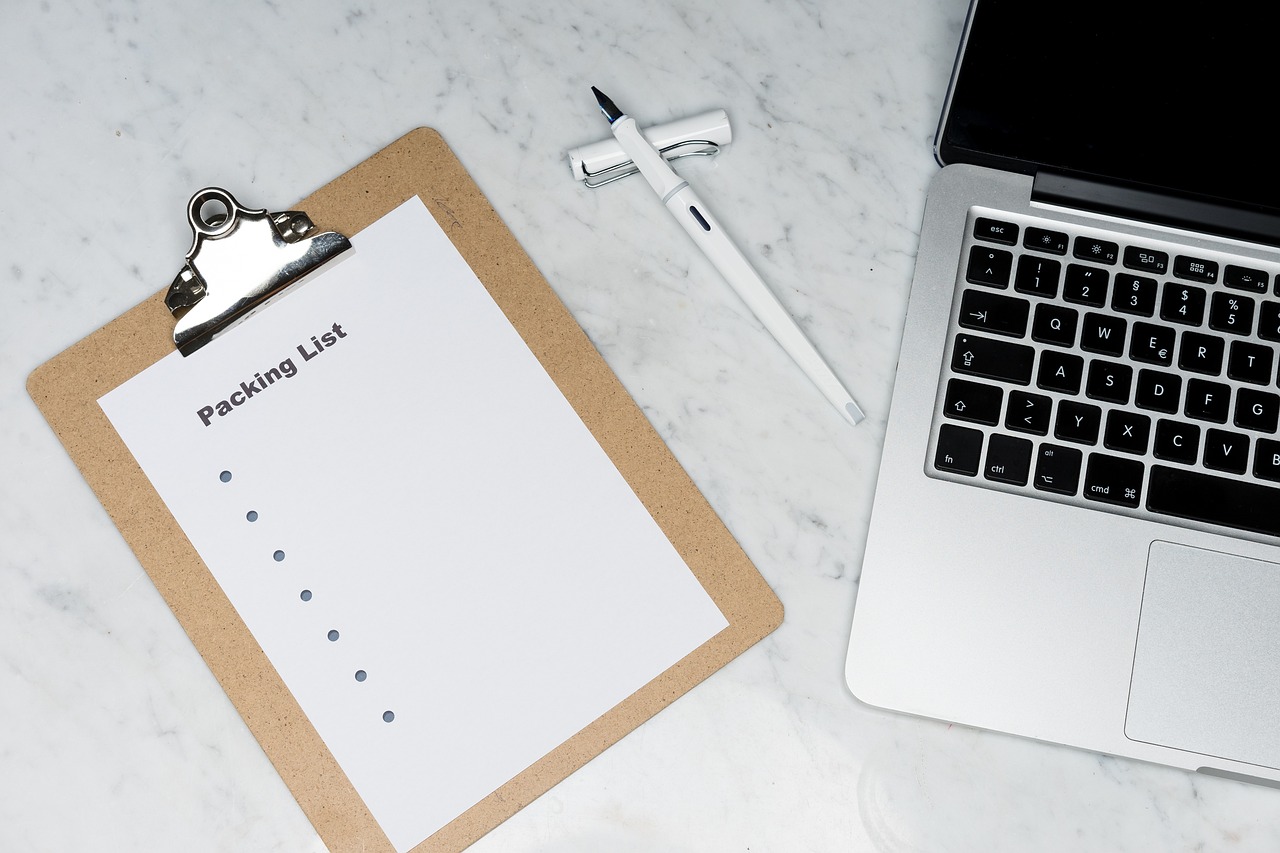
Locking Mechanisms
When it comes to securing your belongings while traveling, play a crucial role. Think of your luggage as a fortress; the locks are your first line of defense against potential thieves. With various types of locks available, it’s essential to choose one that not only meets your security needs but also fits your travel style. For instance, traditional key locks may offer simplicity, but they can be easily picked or lost. On the other hand, combination locks provide a level of convenience since you don't have to worry about carrying a key, but they can also be forgotten if you don't remember the code.
Here are some effective locking mechanisms you might consider:
- Combination Locks: These locks require a numerical code to unlock. They are convenient because you don’t need to carry a key, but remember, if you forget the combination, you could be stuck.
- Key Locks: These are the traditional locks that use a physical key. While they can be more secure, losing the key can lead to frustration.
- Built-in Locks: Some luggage comes equipped with built-in locks that are integrated into the design. These can deter thieves since they are harder to access and manipulate.
In addition to these options, consider locks that are TSA-approved. These locks can be opened by security personnel at airports without damaging your luggage. This feature is particularly useful when traveling internationally, as it ensures that your belongings can be inspected without compromising your security.
Ultimately, the choice of locking mechanism should reflect not just your security needs, but also your travel habits. If you often find yourself in crowded places or using public transport, a lock that offers a higher level of security can provide peace of mind. Remember, the goal is to make it as difficult as possible for anyone to access your belongings without your permission.
| Type of Lock | Security Level | Convenience | Comments |
|---|---|---|---|
| Combination Lock | Medium | High | No key needed, but remember the code! |
| Key Lock | High | Medium | More secure, but key loss can be an issue. |
| Built-in Lock | High | Medium | Integrated into luggage, harder for thieves to access. |
| TSA-approved Lock | Medium | High | Allows TSA access without damage. |
In conclusion, investing in a quality locking mechanism is a small step that can make a significant difference in protecting your belongings. Whether you choose a combination lock for its convenience or a key lock for its security, ensure that it complements your travel style and offers the best protection for your valuables.
1. What is a TSA-approved lock?
A TSA-approved lock allows airport security to open your luggage for inspection without damaging the lock. This is especially useful for international travel.
2. How do I choose the best lock for my luggage?
Consider your travel habits, the level of security you need, and whether you prefer the convenience of a combination or key lock. Built-in locks can also offer added security.
3. Can I use multiple locks on my luggage?
Yes, using multiple locks can enhance security, but it may also slow down the process of accessing your belongings at security checkpoints.
4. What should I do if I forget my combination?
If you forget your combination, check the lock's manual for reset instructions or contact the manufacturer for assistance.

Combination vs. Key Locks
When it comes to securing your luggage, the choice between combination locks and key locks can significantly impact your travel experience. Each type has its own set of advantages and disadvantages, making it essential to weigh your options carefully. A combination lock, for instance, eliminates the need to carry a physical key, which can be easily lost or misplaced during your travels. Instead, you simply remember a sequence of numbers. This can be particularly advantageous if you're frequently on the go, as fumbling for a key can be a hassle, especially in crowded airports or train stations.
On the other hand, key locks offer a sense of traditional security that many travelers still prefer. They are often viewed as more robust and reliable, as they don't rely on a numerical code that could potentially be forgotten or guessed. However, the downside is the risk of losing the key. Imagine arriving at your destination only to realize your key is nowhere to be found! This scenario can lead to a frustrating situation where you might need to cut your lock or seek assistance to open your luggage.
To help you make an informed decision, here’s a quick comparison of the two types:
| Feature | Combination Locks | Key Locks |
|---|---|---|
| Ease of Use | No key required; just remember the code | Requires physical key |
| Security Level | Potentially vulnerable to code guessing | Generally more secure, but key can be lost |
| Convenience | Convenient for frequent travelers | Can be inconvenient if key is lost |
| Durability | Varies by brand; some can be flimsy | Typically more durable |
Ultimately, the choice between combination and key locks boils down to personal preference and travel style. If you often find yourself in situations where you could easily misplace a key, a combination lock might be your best bet. Conversely, if you value traditional security and don’t mind keeping track of a small key, then a key lock could be the right choice for you. Either way, investing in a quality lock can offer you peace of mind, allowing you to focus on enjoying your travels rather than worrying about the safety of your belongings.
- Are combination locks more secure than key locks?
It depends on the quality of the lock. Generally, key locks are considered more secure, but a high-quality combination lock can also provide adequate protection. - What should I do if I forget my combination?
Most combination locks come with a reset option or a backup key. Check the manufacturer's instructions for recovery options. - Can I use both types of locks on my luggage?
Absolutely! Using a combination lock on one compartment and a key lock on another can enhance security further.

Built-in Locks
When it comes to safeguarding your belongings while traveling, in luggage can be a game changer. These locks are integrated into the design of the bag, providing a seamless way to secure your items without the hassle of carrying additional locks. Imagine the peace of mind that comes with knowing your luggage is fortified against unauthorized access—it's like having a personal bodyguard for your valuables!
One of the most appealing aspects of built-in locks is their convenience. Unlike traditional locks that require you to remember a key or combination, many built-in locks feature user-friendly designs. For instance, some come with combination dials that you can set to a number of your choosing, while others may utilize a keyless entry system, allowing you to unlock your bag with just a simple press of a button or a swipe of a card. This not only enhances security but also makes accessing your belongings a breeze, especially in crowded airports or busy train stations where every second counts.
Moreover, built-in locks often come with additional features that can further enhance your security. For example, many models are equipped with TSA-approved locks, which allow security personnel to inspect your luggage without damaging the lock. This can be particularly beneficial when traveling internationally, as it ensures that your bag can be opened by authorities if needed, while still keeping it secure from potential thieves.
However, it's important to consider the limitations of built-in locks as well. While they provide a solid level of security, they are not infallible. A determined thief may still find a way to breach these locks, so it’s wise to supplement built-in security with other precautions, such as using anti-theft bags or being vigilant about your surroundings. Additionally, if the lock mechanism fails, it may be more difficult to access your belongings compared to a traditional lock system.
In conclusion, built-in locks offer a blend of convenience and security that can significantly enhance your travel experience. They eliminate the need for extra locks, provide quick access to your items, and often include features that cater to modern travel needs. Just remember to stay aware of your surroundings and consider additional safety measures to ensure your belongings remain protected throughout your journey.
- Are built-in locks secure enough for international travel?
Yes, built-in locks can be secure, especially if they are TSA-approved. However, it's wise to remain vigilant and use additional security measures. - Can I change the combination on a built-in lock?
Most built-in locks allow you to set or change the combination, making it easy to customize your security. - What should I do if my built-in lock breaks?
If your built-in lock breaks, contact the manufacturer for repair options or consider using additional security methods until it can be fixed.

Smart Luggage Options
This article explores essential tips and strategies to ensure the safety of your belongings while traveling, including precautions, insurance options, and practical advice for securing your valuables.
Traveling comes with inherent risks, including theft, loss, and damage to belongings. Understanding these risks is crucial for developing effective safety strategies to protect your possessions during your journeys.
Selecting the appropriate luggage can significantly impact the safety of your belongings. This section discusses features to look for in luggage that can deter theft and withstand travel wear and tear.
Effective locking mechanisms are vital for securing your luggage. This subsection reviews various types of locks and how they can enhance the security of your belongings while traveling.
Both combination and key locks have their pros and cons. Here, we compare their effectiveness and convenience to help you choose the best option for your travel needs.
Some luggage comes with built-in locks. This section explores the benefits of built-in security features and how they can provide additional peace of mind during your travels.
In today's tech-savvy world, smart luggage has emerged as a game-changer for travelers. These innovative bags not only carry your belongings but also offer features that enhance security and convenience. Imagine being able to track your luggage in real time or unlock it with just a touch on your smartphone! Smart luggage typically includes GPS tracking, built-in chargers, and even weight sensors to prevent overpacking.
One of the most appealing aspects of smart luggage is its ability to connect to your smartphone via Bluetooth. This connectivity allows you to monitor the location of your bag through a dedicated app, giving you peace of mind, especially in crowded airports or busy train stations. If your bag goes missing, you can easily locate it, reducing the stress of travel mishaps.
Moreover, many smart luggage options are equipped with anti-theft features. For instance, some models come with lockable zippers that can be controlled through the app, adding an extra layer of security. You can also set alerts that notify you if your bag is moved without your consent.
However, it's essential to consider the limitations of smart luggage. For example, some airlines have restrictions on battery-powered bags, so it's crucial to check with your airline before traveling. Additionally, the price point for smart luggage can be higher than traditional options, but the investment may be worth it for frequent travelers.
Here’s a quick comparison of some popular smart luggage features:
| Feature | Benefit |
|---|---|
| GPS Tracking | Locate your bag in real-time |
| Built-in Battery | Charge your devices on the go |
| Anti-theft Lock | Secure your belongings from theft |
| Weight Sensors | Avoid overweight baggage fees |
In conclusion, smart luggage options not only make your travel experience more enjoyable but also add a layer of security that traditional luggage may lack. As you prepare for your next adventure, consider investing in smart luggage to keep your belongings safe and accessible.
Travel insurance can provide financial protection against loss or theft of belongings. This section outlines the types of coverage available and tips for selecting the right policy for your needs.
Understanding the different types of travel insurance can help you choose the best coverage. This subsection details the various policies and what they typically cover concerning personal belongings.
Knowing how to file a claim can be crucial if your belongings are lost or stolen. This section provides a step-by-step guide to ensure you navigate the claims process effectively.
Implementing practical safety measures can significantly reduce the risk of loss or theft. This section offers actionable tips for securing your belongings while traveling, from packing strategies to vigilance.
Anti-theft bags are designed with security features to deter thieves. This subsection discusses the various types of anti-theft bags and their effectiveness in protecting your valuables.
Awareness of your surroundings is key to preventing theft. This section emphasizes the importance of vigilance and offers tips on staying alert while traveling to safeguard your belongings.
Q: What should I do if my luggage is lost or stolen?
A: First, report it to the airline or transport authority immediately. They will guide you on the next steps and help you file a claim.
Q: Is travel insurance worth it?
A: Absolutely! Travel insurance can save you from significant financial loss if your belongings are lost, stolen, or damaged during your trip.
Q: How can I keep my valuables safe while traveling?
A: Use anti-theft bags, stay vigilant, and consider using smart luggage for added security.

Insurance for Your Belongings
When it comes to traveling, one of the most critical aspects to consider is how to protect your belongings from unexpected events. That's where travel insurance comes into play. It acts as a safety net, offering financial protection against loss or theft of your belongings while you're away from home. Imagine arriving at your dream destination only to find that your luggage went on a vacation of its own! With the right insurance, you can breathe a sigh of relief knowing that you're covered.
There are various types of coverage available, each designed to cater to different travel needs. For instance, some policies will cover lost luggage, while others might include coverage for stolen items or even damage to your belongings. Understanding these options is essential for selecting the right policy. Here’s a quick overview of the most common types of travel insurance that pertain to your belongings:
| Type of Insurance | Description |
|---|---|
| Comprehensive Travel Insurance | Covers a wide range of issues, including lost luggage, trip cancellations, and medical emergencies. |
| Single-Trip Insurance | Designed for one-time trips, covering specific needs for that journey. |
| Annual Travel Insurance | Best for frequent travelers, offering coverage for multiple trips within a year. |
| Specialized Coverage | Policies that focus on specific activities, such as adventure sports or high-value items. |
Choosing the right insurance policy can feel overwhelming, but it doesn’t have to be. Start by assessing your travel habits and the value of your belongings. For instance, if you plan to travel frequently or carry expensive gear, opting for comprehensive or annual coverage might be wise. Conversely, if you're taking a one-off trip, single-trip insurance could suffice.
Once you've settled on a policy, understanding how to file a claim is crucial. In the unfortunate event that your belongings are lost or stolen, navigating the claims process can be daunting. Here’s a simple step-by-step guide to help you through:
- Document Everything: Take photos of your belongings and keep receipts. This documentation will be invaluable when filing a claim.
- Notify Authorities: If your items are stolen, report it to local authorities immediately. This step is often required for insurance claims.
- Contact Your Insurer: Reach out to your insurance provider as soon as possible to inform them of the situation and initiate the claims process.
- Fill Out the Claim Form: Complete the necessary paperwork, providing all required documentation and details about the incident.
- Follow Up: Stay in touch with your insurer to track the status of your claim and ensure all necessary steps are being taken.
In summary, investing in travel insurance is a smart move for any traveler. It provides peace of mind, knowing that you have a financial cushion in case things go awry. Whether you're wandering through bustling markets or lounging on a serene beach, having the right coverage allows you to focus on what truly matters—enjoying your adventure!
- What does travel insurance typically cover? Most travel insurance policies cover lost luggage, trip cancellations, medical emergencies, and theft of personal belongings.
- Is travel insurance worth it? Yes, especially if you're traveling with valuable items or to destinations where theft is common. It provides peace of mind and financial protection.
- How do I choose the right policy? Assess your travel needs, the value of your belongings, and compare different policies to find one that fits your requirements.
- What should I do if my belongings are stolen? Report the theft to local authorities and your insurance provider immediately to begin the claims process.

Types of Travel Insurance
When it comes to protecting your belongings while you travel, understanding the various types of travel insurance available is essential. Travel insurance isn't just a safety net; it's your peace of mind when you're exploring new destinations. There are several types of coverage that can help safeguard your belongings, ensuring that you’re not left high and dry if something goes wrong.
First off, let's talk about the most common type of travel insurance: trip cancellation insurance. This type of policy can reimburse you for non-refundable expenses if you have to cancel your trip for a covered reason. Imagine planning the vacation of your dreams only to find out you can’t go due to an unexpected event. With trip cancellation insurance, you can recover some of those costs, which can include flight tickets and hotel reservations.
Next, we have travel medical insurance. While it primarily covers medical emergencies, it can also include coverage for lost or stolen personal belongings during your trip. If you happen to lose your luggage while seeking medical attention, this insurance can help you replace your essentials. It’s crucial to check the specifics of your policy, as not all travel medical insurance covers personal items.
Then there’s baggage insurance, which specifically focuses on your belongings. This type of insurance can reimburse you for lost, stolen, or damaged luggage. It’s particularly useful if you’re traveling with valuable items such as electronics or jewelry. When opting for baggage insurance, make sure to document your items and keep receipts, as this will help expedite any claims you might need to file.
Another type worth mentioning is personal liability insurance. While it doesn’t cover your belongings directly, it protects you if you accidentally damage someone else’s property or injure someone while traveling. This can be a lifesaver in case of unexpected incidents, giving you an extra layer of security.
In summary, here’s a quick breakdown of the most common types of travel insurance:
| Type of Insurance | Description |
|---|---|
| Trip Cancellation Insurance | Reimburses non-refundable expenses if you cancel your trip. |
| Travel Medical Insurance | Covers medical emergencies and may include lost personal belongings. |
| Baggage Insurance | Reimburses for lost, stolen, or damaged luggage. |
| Personal Liability Insurance | Protects against damages or injuries caused to others. |
Before you finalize your travel plans, it’s wise to compare different policies and their coverage options. Each insurance provider may offer unique benefits, so take the time to read the fine print. Knowing what is and isn’t covered can save you from unexpected headaches during your trip.
Ultimately, the right travel insurance can be a game changer. It not only protects your belongings but also allows you to enjoy your adventures without constantly worrying about what could go wrong. So, as you pack your bags and prepare for your next journey, don’t forget to include travel insurance as a key component of your travel plans!
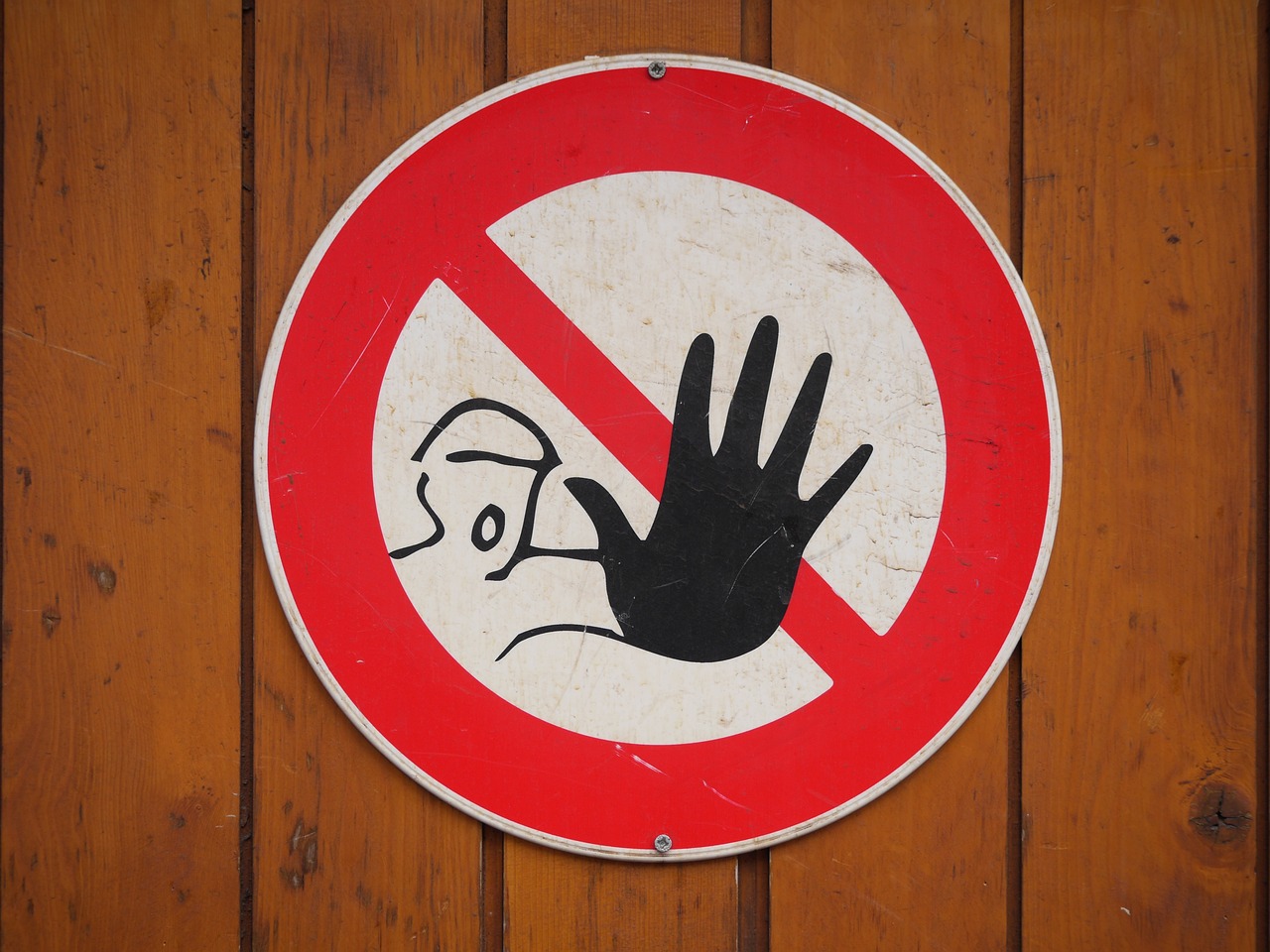
Filing a Claim
When the unfortunate happens and your belongings are lost or stolen during your travels, knowing how to file a claim can make a world of difference. The process can seem daunting, especially when you're already dealing with the stress of losing your valuables. However, with a clear understanding of the steps involved, you can navigate the claims process with confidence and ease.
First and foremost, document everything. As soon as you realize your belongings are missing, take immediate action. This includes:
- Gathering evidence: Take photos of the area where the item was lost or stolen, and make a list of all the items that were affected.
- Reporting the incident: Contact local authorities or the hotel management to file a report. This documentation is essential for your claim.
- Contacting your insurance provider: Reach out to your travel insurance company as soon as possible. They can guide you through the next steps.
Once you've reported the incident, you will need to fill out a claim form. Most insurance companies provide these forms online, making it easy to submit your claim from anywhere. Be sure to include all relevant details, such as:
- Your policy number
- A detailed description of the lost or stolen items
- Any reports you filed with local authorities
- Receipts or proof of purchase for the items, if available
After submitting your claim, it’s crucial to keep track of all correspondence with your insurance provider. This includes emails, phone calls, and any additional documentation they may request. Patience is key, as the processing time can vary. In some cases, you might receive a request for further information, so be prepared to respond promptly to avoid delays.
To give you a clearer picture of the filing process, here’s a simple step-by-step guide:
| Step | Action |
|---|---|
| 1 | Document the loss or theft |
| 2 | Report to local authorities |
| 3 | Contact your insurance provider |
| 4 | Fill out and submit the claim form |
| 5 | Follow up on your claim status |
Finally, remember that being proactive can help streamline the claims process. Always familiarize yourself with your insurance policy before you travel. Knowing what is covered and any exclusions can save you a lot of headaches later on. So, keep your policy documents handy and ensure you have all necessary contact information for your insurance provider. This way, if the worst happens, you’ll be ready to act swiftly and efficiently.
Q: What should I do if my belongings are stolen while traveling?
A: Immediately report the theft to local authorities and your insurance provider. Document everything and file a claim as soon as possible.
Q: Will my travel insurance cover lost items?
A: Most travel insurance policies do cover lost or stolen belongings, but it’s essential to check the specifics of your policy.
Q: How long does it take to process a claim?
A: Processing times can vary depending on the insurance company and the complexity of the claim, but it typically takes a few weeks.
Q: What if I don’t have receipts for my lost items?
A: While receipts are helpful, you can still file a claim. Provide as much information as possible about the items, such as photos or descriptions, to support your claim.

Practical Tips for Keeping Belongings Safe
When it comes to keeping your belongings safe while traveling, a little preparation can go a long way. Imagine you're at a bustling airport or a crowded market; the last thing you want is to be worrying about your valuables. So, how can you ensure that your items stay secure? Here are some practical tips that can help you travel with peace of mind.
First and foremost, consider investing in anti-theft bags. These bags are specifically designed with security features that make it difficult for thieves to access your belongings. Many of them come equipped with lockable zippers, cut-resistant straps, and RFID-blocking compartments to protect your credit cards and personal information. Think of these bags as your personal bodyguard, always on duty to keep your valuables safe. When choosing an anti-theft bag, look for options that suit your travel style, whether it's a backpack, crossbody, or tote.
Another essential tip is to practice vigilance. Staying aware of your surroundings can significantly reduce the risk of theft. When you're in a public place, make it a habit to keep your belongings close. For instance, if you’re sitting at a café, keep your bag on your lap rather than hanging it on a chair. Additionally, try to avoid displaying expensive items like cameras or jewelry in crowded areas, as they can attract unwanted attention. Remember, being alert is your first line of defense!
When packing, think strategically about how you arrange your belongings. Keep your most valuable items, such as passports, money, and electronics, in a secure location, like a money belt or a hidden pouch. This way, even if your bag is lost or stolen, your most important items remain safe. Also, consider using packing cubes or compression bags to organize your luggage efficiently. Not only does this help you find what you need quickly, but it also makes it less likely for someone to rummage through your things.
Lastly, don’t underestimate the power of technology. Smart luggage options are becoming increasingly popular, offering features like GPS tracking and built-in alarms. Imagine being able to track your suitcase in real-time through an app on your phone! This can provide you with an extra layer of security, especially in busy transit hubs. If your luggage goes missing, a quick glance at your phone could save you a lot of stress.
In summary, keeping your belongings safe while traveling requires a combination of the right tools and a proactive mindset. By investing in anti-theft bags, staying vigilant, packing wisely, and utilizing technology, you can significantly reduce the risk of loss or theft. So, the next time you embark on a journey, remember these tips and travel with confidence!
- What should I do if my belongings are stolen while traveling?
Immediately report the theft to local authorities and your hotel or accommodation. If necessary, contact your bank to freeze your cards.
- Are anti-theft bags worth the investment?
Absolutely! They provide added security features that can deter thieves and give you peace of mind while traveling.
- How can I keep my passport safe?
Consider using a money belt or a neck pouch to keep your passport secure and hidden from view.

Using Anti-Theft Bags
When it comes to traveling, the last thing you want is to be constantly worried about your belongings. That's where anti-theft bags come into play. These ingenious creations are designed specifically to keep your valuables safe from prying hands. Imagine walking through a crowded market or navigating a bustling airport, and instead of feeling anxious, you can relax knowing your belongings are secure. With features like lockable zippers, cut-resistant straps, and RFID-blocking compartments, anti-theft bags are like having a personal bodyguard for your stuff!
One of the standout features of these bags is their security-enhanced design. Many anti-theft bags come equipped with hidden pockets and compartments that make it difficult for thieves to access your belongings without you noticing. For example, some backpacks have a secret pocket located against your back, making it nearly impossible for a pickpocket to reach in without you feeling it. This clever design not only deters theft but also gives you peace of mind as you explore new places.
Moreover, the variety of options available means you can choose a bag that fits your travel style. Whether you prefer a sleek backpack, a stylish crossbody, or a functional tote, there’s an anti-theft bag out there that meets your needs. Here are a few popular types you might consider:
- Anti-Theft Backpacks: Perfect for day trips and hiking, these often include features like padded compartments for your laptop and water bottle holders.
- Crossbody Bags: Ideal for city exploration, these bags allow you to keep your belongings close while freeing up your hands.
- Travel Totes: Great for carrying essentials while still being fashionable, many totes now come with anti-theft features as well.
But how do you know which anti-theft bag is right for you? It’s essential to consider factors like size, weight, and functionality. A bag that’s too bulky can be cumbersome, while one that’s too small may not hold all your essentials. Additionally, look for bags made from durable materials that can withstand the rigors of travel. Water-resistant fabrics, for example, can protect your belongings from unexpected rain showers, adding another layer of security.
In conclusion, using an anti-theft bag while traveling is a smart investment. Not only do these bags offer practical security features, but they also allow you to enjoy your adventures without the constant worry of theft. So, the next time you’re planning a trip, consider adding an anti-theft bag to your packing list. It could be the difference between a stress-free vacation and a trip filled with anxiety over your belongings!
Q: Are anti-theft bags worth the investment?
A: Absolutely! Given the added peace of mind and security they provide, anti-theft bags are a worthwhile investment for any traveler.
Q: Can I use an anti-theft bag for everyday use?
A: Yes! Many anti-theft bags are stylish and functional enough for everyday wear, making them perfect for both travel and daily activities.
Q: What features should I look for in an anti-theft bag?
A: Look for features like lockable zippers, cut-resistant straps, RFID-blocking compartments, and hidden pockets to ensure maximum security.
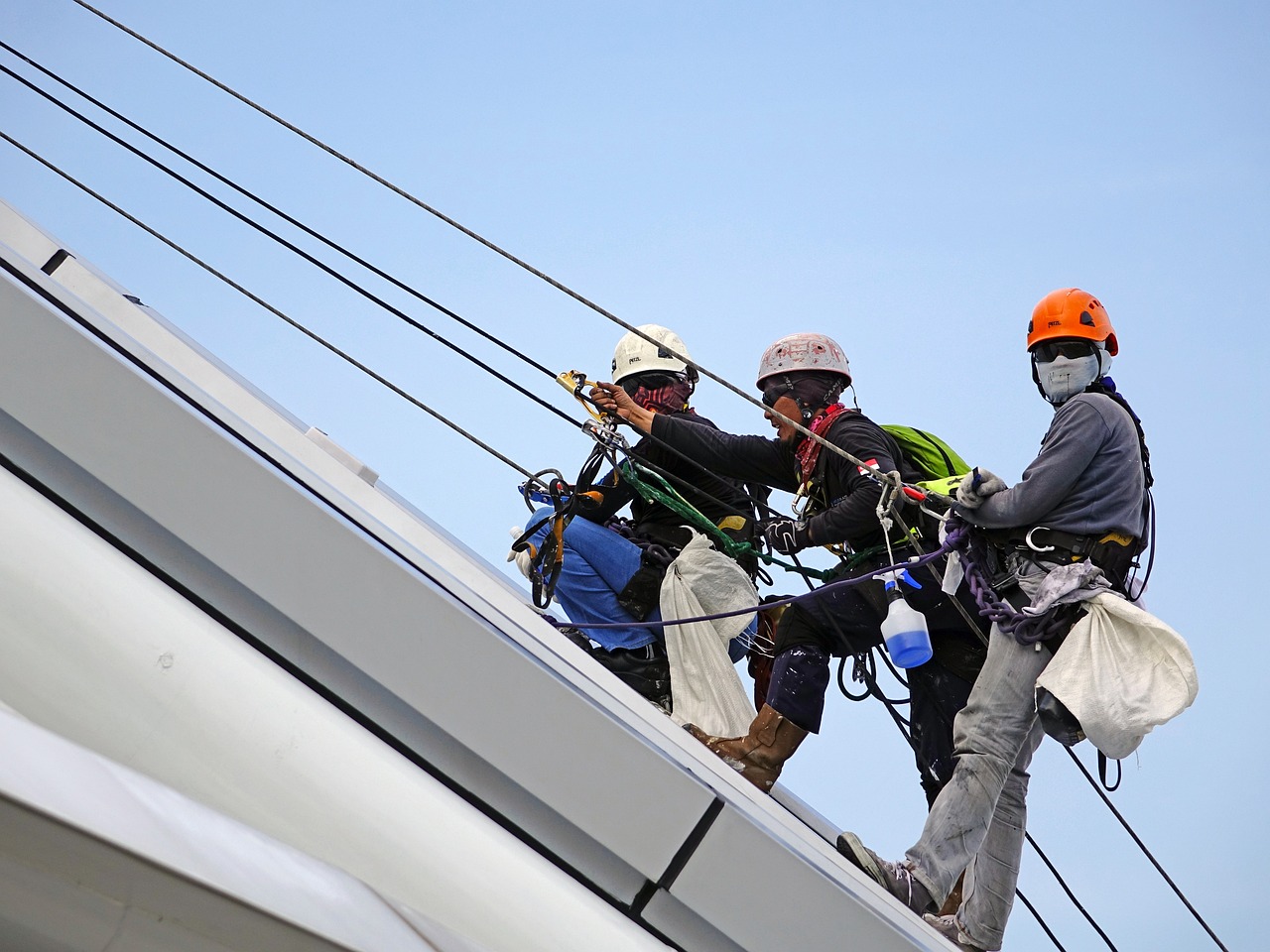
Staying Vigilant
When you're traveling, one of the most important things you can do to protect your belongings is to stay vigilant. It may sound simple, but being aware of your surroundings can make a world of difference in preventing theft or loss. Think of yourself as a hawk, always scanning your environment for anything that seems out of place or suspicious. By adopting this mindset, you can significantly reduce the chances of becoming a target for thieves.
First and foremost, trust your instincts. If something feels off, it probably is. Whether it's a crowded market or a quiet street, if you sense danger, don't hesitate to move to a safer location. Your gut feelings are your first line of defense. Additionally, try to keep your belongings close to you, especially in crowded areas. A crossbody bag or a secure backpack can help you maintain control over your valuables while keeping your hands free.
Another effective strategy is to be mindful of your gadgets. In today's digital age, our devices are often our most valuable possessions. When using your phone or camera, be aware of who is around you. It's easy to get lost in the moment and forget that you might be showcasing your expensive tech to someone who is looking for an opportunity. Consider using a privacy screen protector to prevent prying eyes from seeing your screen, and always be cautious when taking out your devices in public.
It’s also important to blend in with the locals. Dressing in a way that doesn’t scream “tourist” can help you avoid unwanted attention. Try to research the local culture and dress codes before you arrive at your destination. This not only helps you stay safe but also enriches your travel experience by allowing you to connect more authentically with the local community.
Finally, establish a buddy system if you’re traveling with others. Keeping an eye on each other’s belongings can be incredibly beneficial. If you’re at a café or restaurant, take turns watching the bags while the other person goes to the restroom or orders food. This simple act can prevent a lot of heartache and stress during your travels.
In summary, staying vigilant while traveling is about being aware, trusting your instincts, and taking proactive steps to protect your belongings. By incorporating these practices into your travel routine, you can enjoy your adventures without the constant worry of theft or loss.
- What should I do if my belongings are stolen while traveling?
If your belongings are stolen, immediately report the theft to local authorities and your accommodation. Contact your bank and credit card companies if any financial information was compromised. Consider filing a claim with your travel insurance provider.
- How can I keep my valuables safe in a hotel room?
Use the hotel safe if available, and keep your valuables out of sight. Avoid leaving important items like passports and electronics in plain view. Always lock your door and use any additional security features provided by the hotel.
- Are anti-theft bags worth the investment?
Yes, anti-theft bags often come with features like lockable zippers, cut-resistant straps, and RFID-blocking technology, which can significantly enhance the security of your belongings while traveling.
Frequently Asked Questions
- How can I protect my belongings from theft while traveling?
To safeguard your belongings from theft, consider using anti-theft bags that come with security features like lockable zippers and cut-resistant straps. Always stay aware of your surroundings, especially in crowded places, and avoid displaying valuable items openly.
- What type of luggage is best for keeping my belongings safe?
Opt for luggage with durable materials and effective locking mechanisms. Look for options with built-in locks or those that can accommodate combination locks for added security. Smart luggage with tracking features can also enhance safety during your travels.
- Is travel insurance worth it for protecting my belongings?
Absolutely! Travel insurance can provide essential financial protection against loss, theft, or damage to your belongings. When selecting a policy, ensure it covers personal items and understand the claims process to make it easier if you need to file a claim.
- What should I do if my belongings are lost or stolen while traveling?
If your belongings are lost or stolen, report the incident to local authorities and your travel insurance provider as soon as possible. Document everything, including receipts and photographs of the items, to support your claim effectively.
- How can I pack my belongings to minimize the risk of loss or damage?
Use packing cubes to organize your items and keep them secure within your luggage. Always keep important documents and valuables in your carry-on bag. Additionally, consider using a luggage tracker to help locate your bags in case they go missing.
- Are combination locks better than key locks for travel?
Combination locks can offer convenience since you don’t need to carry a key. However, they can be less secure if someone knows how to crack the code. Key locks, while requiring a key, can sometimes provide a stronger deterrent against theft. Evaluate your needs to choose the best option.

